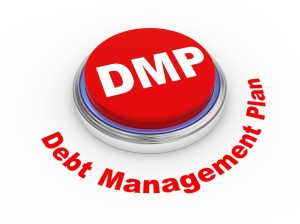Today the biggest financial calamity looming ahead of 50 percent of people is not their immediate debt but the failure to set sights further down the road and look at the retirement crisis to come. Putting off dealing with your debt can cost you the very money you will need to retire and be able to afford to eat and live even just a moderate life. If you want to see what limping along in a failed debt relief strategy will cost you, It is a legal choice made when the debt situation is hopeless. I am certainly not recommending bankruptcy as a casual solution and I’ve seen very few people who use it that way. In fact the percentage of people who file bankruptcy more than once is very small.
If you’ve decided to move ahead with bankruptcy then here are some good tips shared with me by Rick Abelmann, a bankruptcy attorney in Hawaii.
What Not to Do Before Bankruptcy
Debt can creep up on you. Perhaps you had a credit card that started out with a low interest rate. You have that credit available, so why not buy a couple of things that you wanted for a while, but haven’t been able to afford? Or, perhaps you’re using it to buy something essential. Either way, that interest rate suddenly balloons, or the amount you owe grows larger every month, until you simply cannot keep up.
That is the point when you might want to consider filing for bankruptcy. That’s a scary word these days, but the truth is it is meant to provide some protection, and a way forward, for people who are unable to pay their debts. Speaking with a lawyer or financial planner can be helpful, but if you find yourself in over your head, filing bankruptcy may be your only option.
That are lots of guides, and lots of people, out there that can help you navigate the first few steps in the filing process. However, there are some things that you definitely do not want to do before filing for bankruptcy.
1. Don’t Pay Creditors
Avoid making any large or unusual payments. This can seem counterintuitive, but is an important point. It may seem like you should pay creditors if you are able, but it can cause problems later on. This is not to say you shouldn’t make routine payments or pay bills. You should still pay your monthly credit card bill, if you can, and your electric bill and so forth. However, large payments to single creditors, or paying off a whole debt, can cause problems after you file. These are called ‘preferential transfers,’ meaning that one creditor has benefited unfairly over others. This is particularly true if the debt you pay off is to a relative or friend. These creditors can be sued later by the court, and have the money taken away.
2. Don’t Run Up New Debt
It may be obvious, but it is worth saying. Do not, if you plan on filing for bankruptcy, run up new debt unless it is absolutely necessary. As the saying goes, if you find yourself in deep, the first thing to do is stop digging. The consequences of running up new debt can be serious. The new creditor can claim you took out that loan, opened the credit card, or ran up the balance on an existing card, without intending to pay it back. This can legally be considered fraud, and that debt, in particular, will not be discharged in bankruptcy proceedings. You will still owe the whole of that debt.
3. Don’t Make Any Unusual Transactions
Again, you should continue to pay routine bills. No one will object to you paying for food or other expenses that cannot be avoided. Any transactions beyond the routine should be avoided, again, unless necessary. Some people try to transfer money or assets to relatives or friends in the hope that this will prevent the court from seizing them. This is an incorrect belief, and the court may end up suing for the return of the assets. If you own a business, in whole or in part, do not try to transfer it or remove your name. Do not transfer titles of cars or homes. Definitely do not buy new luxury goods or make unnecessary purchases. All of these things can be classified as fraud, and have unpleasant consequences.
4. Don’t Keep It to Yourself
You may be considering bankruptcy because you are being sued, or because creditors are threatening to sue. If this is the case, do not wait to tell them you are filing, or considering filing. Creditors may attempt to garnish wages or seize assets to discharge a debt, which could be avoided by filing for bankruptcy. Money and assets can be retrieved in some cases after filing, but it is difficult and can be expensive. It is better to avoid the problem by informing creditors of your plans before any of these problems arise.
5. Don’t Provide Inaccurate Information
You are required, in the process of filing for bankruptcy, to provide full and complete information. Any debt, assets, accounts, and other financial information has to be provided. Attempting to hide information can, again, be considered fraud. Fraud is a serious issue, and can prevent debts from being discharged in bankruptcy proceedings. It can also potentially lead to criminal charges.
7. Don’t Drain Retirement Funds
In many cases, you are allowed to retain retirement funds and accounts. Rather than draining these accounts to pay debts, it may be preferable to file for bankruptcy and keep your retirement funds intact. The specifics of which accounts are safe from bankruptcy proceedings and which are not will vary depending on the specifics of the situation and the laws of your particular area. It is usually a good idea to consult with a lawyer before making decisions in regards to retirement funds.
8. Don’t File If You Are About To Receive A Large Sum
Perhaps this is another no-brainer, but you should not file for bankruptcy if you are about to receive a large sum of money that will allow you to pay your debts in all or in part. Bankruptcy can be helpful in many cases, but if you can resolve your financial situation without filing, that is probably preferable. This money may be seized by a court representative and used to pay your debts, also, when you might have been able to reach another arrangement with your creditors.
The primary factor in many of these cases is time. Many jurisdictions have a specific time period, usually 70 to 90 days, before filing, during which you should not make any major changes or transactions. However, it can be dangerous to think you can out maneuver the court and find sneaky ways to retain your assets. Being honest and upfront is the most likely way to reach a positive outcome.
Call Firebaugh & Andrews for your free consultation 734-722-2999


